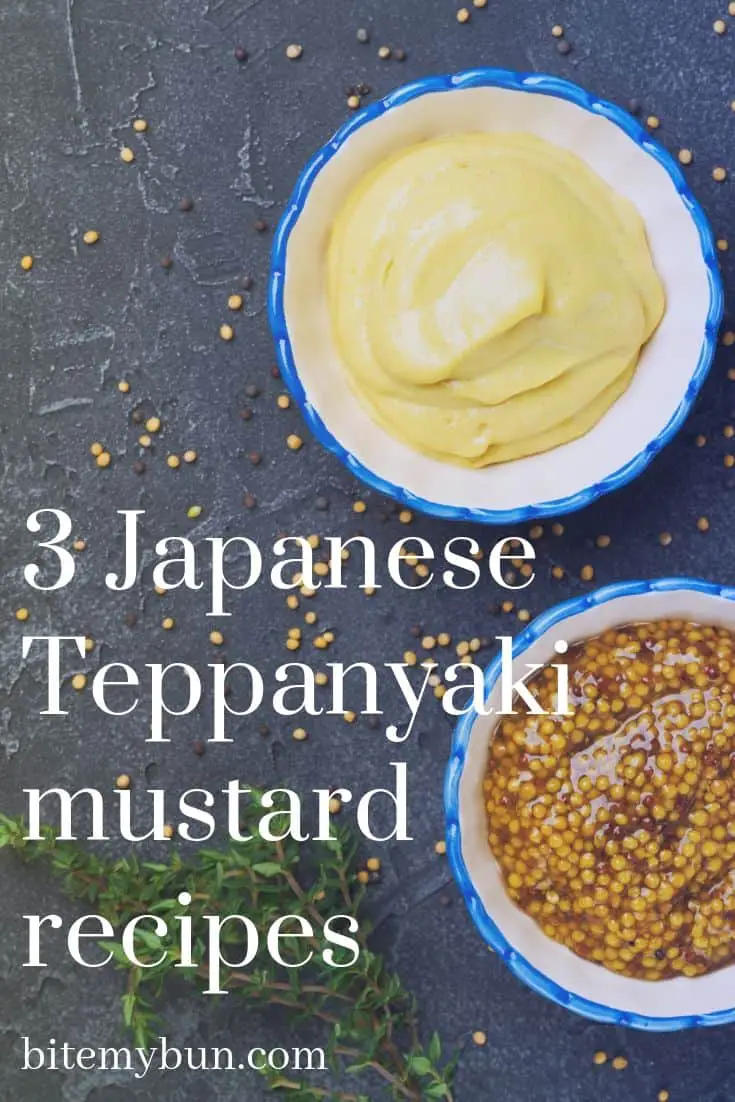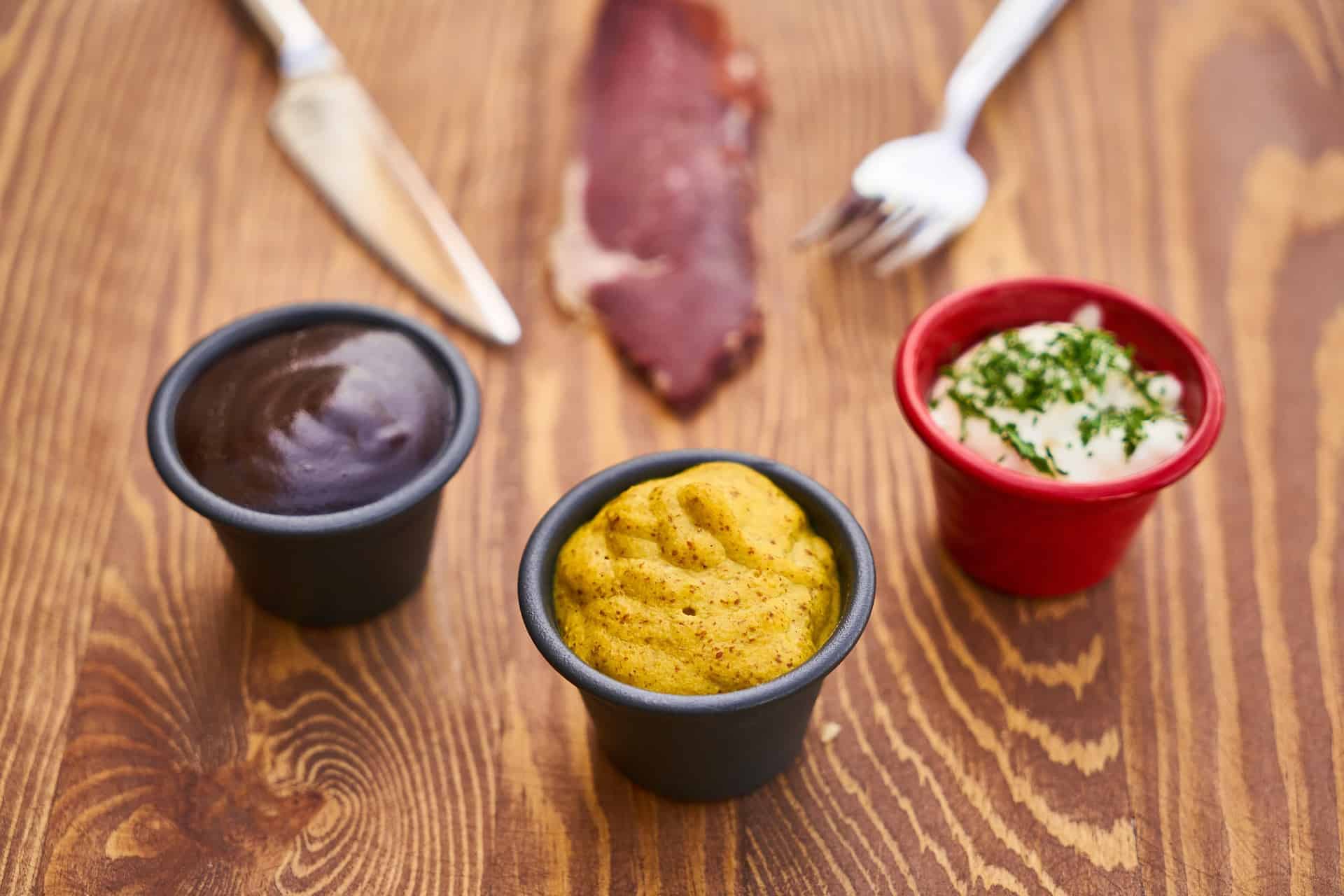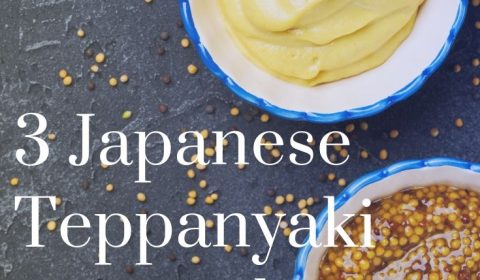The Secret Japanese Steakhouse Hibachi Mustard Sauce Recipe!
You have to learn how to make this best-kept secret of Japanese hibachi-style steakhouse restaurants yourself so you can make it over and over again.
Mustard sauce is great with any type of meat, so don’t limit yourself to teppanyaki or hibachi, just pair it with your steak or other beef, and you’ll be good to go. This version is the perfect balance between sweet and spicy.
Let’s make this shall we?


Check out our new cookbook
Bitemybun's family recipes with complete meal planner and recipe guide.
Try it out for free with Kindle Unlimited:
Read for freeIn this post we'll cover:
How to make teppanyaki hibachi mustard sauce


Japanese Hibachi Mustard Sauce Recipe
Equipment
- Blender or food processor
Ingredients
- 1 ounce onions
- ½ ounce dry mustard
- 1 tsp sesame seeds roasted
- 4 ounces soy sauce
- 1 ounce vegetable oil
- 1 tbsp water
- 1 ounce heavy cream
Instructions
- Prepare a blender and place all the ingredients in it, except for the heavy cream (so onion, mustard, sesame seeds, soy sauce, vegetable oil, and water).
- Set blender to high speed and blend all ingredients until it becomes smooth and creamy.
- Transfer the mixture into a small mixing bowl and add heavy cream. Stir well and then serve.
Hot mustard dipping sauce for teppanyaki recipes
Ingredients
- 3 tbsp dry mustard
- 2 tbsp hot water
- 1 tbsp toasted sesame seeds
- 1/4-1/2 cup low-sodium soy sauce, to taste
- 1 garlic clove, minced
- 2-3 spoonfuls whipped cream, to taste
Cooking directions
- Buy toasted sesame seeds from Amazon or your local grocery store. But if you can’t find them, you can also buy raw seeds and scatter them over a baking sheet, then bake them at 200 ° Celsius for 15 – 30 minutes until they become golden brown.
- The next step is to pour hot water into a small mixing bowl and add the mustard powder to it, then mix thoroughly. Pour the mustard mixture along with the minced garlic, toasted sesame seeds, and soy sauce into a blender, and blend them until they become smooth.
- Beat 1/4 cup heavy whipping cream until stiff peaks form. Stir 2-3 spoonfuls of the whipped cream into the mustard sauce.
- Pour the mustard sauce into each small dipping sauce bowl and serve according to the number of guests you have.
I also wrote an in-depth guide on the best cookbooks for Japanese cuisine right here if you’d like to know more!
Nona’s Japanese steakhouse mustard sauce
Ingredients
- 2 tbsp dry mustard
- 1 1⁄2 tsp sugar
- 5 tbsp milk
- 2 tbsp cream
- 2 tbsp hot water
- 1 tbsp sesame seeds, lightly toasted
- 1⁄4 cup soy sauce
- 1 garlic clove, minced
Cooking directions
- Mix all ingredients in a food processor or a blender and blend until they become frothy. You may refrigerate before serving, or you can serve it immediately.
This is the best bottled stir-fry sauce for my Asian recipes. I’ve written an in depth post about it you might like to read.
Pairing mustard with food
In Western countries, mustard is often used to add taste to meats and cheeses. But sometimes, you can also see it in hot dogs, corn dogs, hamburgers, and sandwiches.
It’s also an important ingredient in marinades, soups, sauces, glazes, and dressings.
Mustard is used as raw seeds and as a cream in various cuisines all over the world, including North and South America, all of Europe, the Mediterranean, Africa, India, Bangladesh, and Asia.
It’s known as one of the most popular and widely used spices and condiments in the world.
Etymology
Before the word “mustard” was translated, used, and world-renown in English, it was first created by the Anglo-Normans. And in their tongue, it was “mustarde”, which evolved from the Old French word “mostarde” (“moutarde” in Modern French).
However, these later translations come from an earlier Latin word “mustum”, the first element of the word “mustard” (around 150 AD), which means young wine or “must”. This is because the Romans prepared the condiment by using must while grinding mustard seeds.
The second element that was also borrowed from Latin is called “ardens”, which means hot or flaming. When combined, they form the word “mustard”, which is as it’s known today for the tree, its seeds, and the famous condiment.
Culinary uses
The most common use for mustard is as a condiment for hot or cold meats.
Besides that, mustard is also used as an important ingredient in making barbecue sauce, marinades, vinaigrette, and mayonnaise.
It’s also a popular accompaniment to hot dogs, pretzels, and bratwurst.
In Northern Europe, particularly in the Netherlands and northern Belgium, they use mustard to make their unique dish called mustard soup. It’s a combination of mustard, cream, parsley, garlic, and pieces of salted bacon.
Mustard can also be used as an emulsifier that has the power to stabilize 2 or more immiscible liquids in a homogeneous mixture when added together (i.e. oil and water). A good example of immiscible liquids is Hollandaise sauce. If you add mustard to the mix, then it can impede curdling.
Enjoy Japanese mustard sauce with your meals
Now you know how to make Japanese mustard sauce. In fact, you’ve got 3 recipes you can try!So the next time you feel like a dish or meal is lacking, whip up some Japanese mustard sauce. This condiment will add a delicious kick to any dish!
Check out my article on all the teppanyaki cooking gear you’ll need to make your own delicious meals at home.
Check out our new cookbook
Bitemybun's family recipes with complete meal planner and recipe guide.
Try it out for free with Kindle Unlimited:
Read for freeJoost Nusselder, the founder of Bite My Bun is a content marketer, dad and loves trying out new food with Japanese food at the heart of his passion, and together with his team he's been creating in-depth blog articles since 2016 to help loyal readers with recipes and cooking tips.

